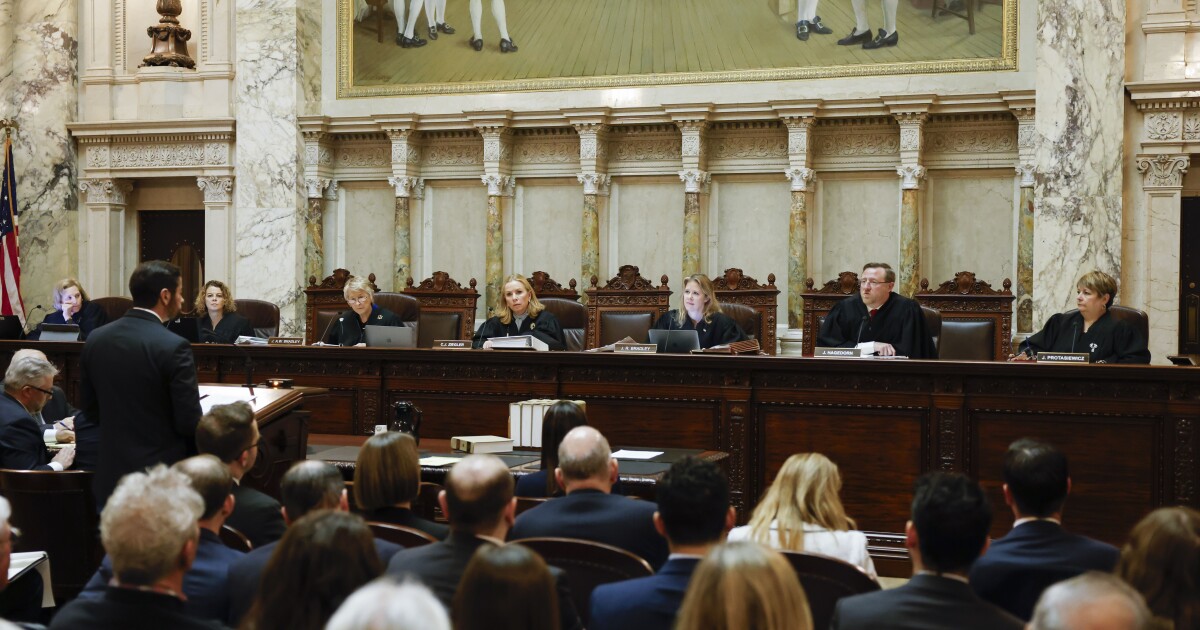

Two experts hired to analyze Wisconsin’s new legislative districts or submit their own maps will be paid up to $100,000 each from taxpayer funds.
Under their contractual terms, each consultant will be paid an hourly rate of $450, and the state director of courts could exceed the maximum of $100,000 if deemed necessary.
The contracts were posted by the court on Thursday. The rates are for two experts: Bernard Grofman, a political scientist at the University of California, Irvine, and Jonathan Cervas, a Carnegie Mellon University postdoctoral fellow.
Grofman was hired in 2021 by Virginia’s Supreme Court to draw maps for redistricting — he was selected by Democrats and worked with a Republican special master.
Cervas has worked on redistricting projects in Pennsylvania, Georgia, Virginia, and Utah, and he was hired in 2022 by a New York judge to redraw legislative districts after the Democratic-proposed maps were ruled unconstitutional.
The Wisconsin Supreme Court ruled the current Republican-drawn maps unconstitutional, an order from the newly liberal court that could have major implications in the 2024 election.
Wisconsin Republicans previously threatened to impeach Justice Janet Protasiewicz if she did not recuse herself from hearing redistricting lawsuits after her vocal opposition to the Republican-drawn districts during her campaign. Protasiewicz, a Democrat, flipped the 15-year conservative court when she was sworn in in the summer.
CLICK HERE TO READ MORE FROM THE WASHINGTON EXAMINER
Attorneys for state Senate Republicans filed a motion last week asking the state’s Supreme Court to reconsider their decision to overturn the Wisconsin legislative maps, arguing they can’t meet the court’s Jan. 12 deadline for new maps. The two consultants have until Feb. 1 to review the maps, which can be passed by the legislature and signed into law by Gov. Tony Evers (D-WI) or drawn by the consultants themselves.
After the 2020 census, each state redrew its congressional district lines to align with the most recent data. Since then, several legal battles across different states have broken out in contention over the maps, mainly on claims of partisanship.





